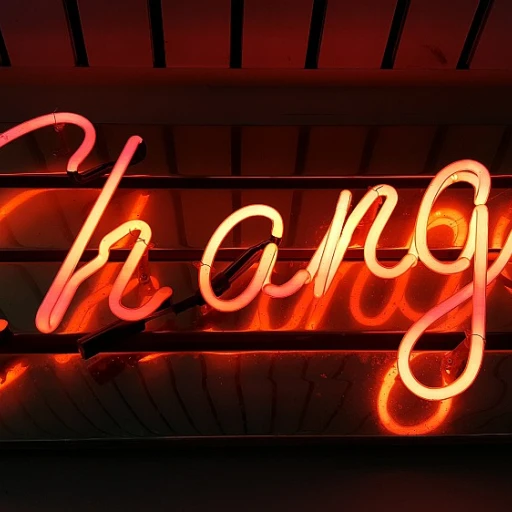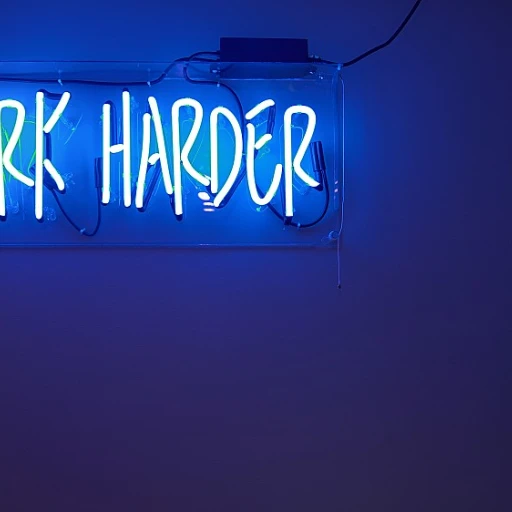
The Role of Personality Tests in Modern Recruitment
Bridging the Gap with Modern Recruitment Tools
In today's fast-paced recruitment process, personality tests have emerged as a pivotal tool for enhancing candidate selection. These assessments provide a structured approach to evaluate whether candidates possess the full spectrum of traits necessary for the role. Not only do they offer insights that go beyond technical skills, but they also help in understanding how a candidate may fit within the company culture.
Tests within the recruitment process are designed to provide a more comprehensive view of a candidate's strengths and areas for development. Candidates face questions that assess a broad range of characteristics, from leadership capabilities to team collaboration. This assessment method stands out because it complements other aspects of recruitment, like the video interview and technical evaluations.
Employers leverage these assessments as a tool to predict job performance, reduce bias, and ensure a fair playing field for all applicants. Thus, personality tests can serve as a bridge, filling the gap between resume reviews and the actual recruitment process. For a detailed exploration of how such modern recruitment practices can enhance candidate experience, delve into effective workplace-based evaluations.
Benefits for Employers and Candidates
The Advantages for Both Sides
In today's competitive job market, personality tests have become significant tools in the recruitment process, enhancing the experience for both candidates and employers. Understanding the advantages these tests bring can make a profound difference. For employers, personality tests are a way to streamline the recruitment process and ensure a more precise match between a candidate's personality and the company culture. These assessment tools help identify candidates who are not only technically proficient but also align well with the team dynamics and values. Candidates, on the other hand, gain a better understanding of the roles they are pursuing. Participating in personality tests can provide insights into their strengths and weaknesses, helping them find positions where they will thrive. These tests allow individuals to showcase attributes beyond their resumes, such as how they interact within teams or handle stress. Both parties benefit from a more transparent process. Employers make informed decisions, reducing the likelihood of turnover and enhancing team cohesion. Candidates appreciate clarity in what is being sought in a potential employee, leading to a more positive job search experience. Moreover, let's not overlook the opportunity for candidates to self-schedule interviews, streamlining communication and providing convenience in an otherwise complex process. This efficiency contributes to a smoother recruitment experience overall. Ultimately, while personality tests are not the sole factor in hiring decisions, they pave the way for a more informed and mutually beneficial recruitment experience, addressing both the technical and interpersonal skills sought after. For those interested in optimizing their interview approach, further insights can be found at the enhancing interview process link.Common Types of Personality Tests
Exploring Various Personality Assessment Types for Interviews
In the recruitment process, the objective of personality assessments is to provide insights into a candidate's traits that might not be immediately evident in an interview or resume. While preparing for these assessments, you may encounter several types. Understanding them helps candidates pour les mieux preparer and employers to choose the most suitable one for their needs.
Common types include the Myers-Briggs Type Indicator (MBTI), the Big Five Personality Traits, the DISC assessment, and situational judgment tests (SJTs). Each of these tests offers a different perspective on a candidate's personality and behavior, making them a valuable tool dans cadre d'un entretien embauche.
- Myers-Briggs Type Indicator (MBTI): This is one of the most recognized assessments, dividing individuals into 16 personality types based on preferences in perception and judgment. Though popular, it might not offer the most scientific rigor. As such, its role est une of general guidance rather than a definitive answer to a candidate's suitability.
- Big Five Personality Traits: Often considered more reliable, this assessment focuses on five central personality traits: openness, conscientiousness, extraversion, agreeableness, and neuroticism. It offers valuable insights into how individuals might fit into full team dynamics and react in various situations.
- DISC Assessment: Concentrating on behavior style, the DISC model evaluates four personality traits: dominance, influence, steadiness, and conscientiousness. It's particularly useful in understanding a candidate's communication style and can be beneficial when used alongside technical assessments.
- Situational Judgment Tests (SJTs): These present candidates with hypothetical, job-related situations and ask them to choose the best response from a set of options. SJTs help evaluate problem-solving skills and judgment, bringing a practical edge to the recruitment process.
For candidates, understanding these different types of assessments and taking some time pour preparer oneself is crucial. Familiarizing yourself with the format and types of questions souvent posed can reduce anxiety and improve performance. It's essential to remember that, while these tests provide valuable insights, they are just one part of the broader assessment puzzle. For more insights into how personality assessments can refine your recruitment strategy, read about enhancing interview feedback for a better candidate experience.
Preparing for a Personality Test
Getting Ready for Your Personality Test
Preparing for a personality test in the recruitment process can be a daunting task, but with the right approach, you can navigate it successfully. These tests are designed to assess various aspects of your personality, providing insights into how you might fit within a company’s culture or perform in a specific role. Here’s how you can prepare effectively:
- Understand the Test Format: Familiarize yourself with the type of test you will be taking. Whether it’s the popular Big Five, the Myers-Briggs Type Indicator, or another assessment, knowing the format will help you feel more comfortable.
- Practice with Sample Questions: Many online resources offer practice questions for different types of personality tests. These can help you get a feel for the kind of questions you might encounter.
- Reflect on Your Experiences: Think about past experiences that highlight your strengths and areas for improvement. This reflection can help you answer questions more authentically.
- Stay Calm and Focused: On the day of the test, ensure you are well-rested and in a calm state of mind. Taking your time to read and understand each question is crucial.
- Be Honest: Remember, these tests are designed to gauge your true personality. Answering honestly will provide a more accurate representation of who you are, which is beneficial for both you and the employer.
While preparing, keep in mind that these tests are just one part of the recruitment process. They are not the sole determinant of your suitability for a role, but rather a tool to help employers understand you better. So, approach them with confidence and authenticity.
Interpreting Test Results
Decoding Your Personality Test Results
Interpreting the results of personality tests can feel like navigating a complex maze, but it becomes manageable with the right approach. Employers leverage these tests as part of the recruitment process to ensure a balanced assessment of candidates, matching personalities to organizational needs. When you receive your results, it's essential to understand that they are not definitive answers but indicators of certain traits. These results will often include scales that describe where you fall in measurements of various personality attributes. Here is how you can make sense of them:- Review the Scales Carefully: Most personality tests will present results in a scaled format, such as from "low" to "high" across different dimensions. High scores in certain areas might denote strengths relevant to the role you're applying for.
- Contextualize Your Results: Don't view any part of the personality assessment in isolation. Rather, consider how these traits play out in a work environment. For instance, high scores in extroversion may indicate a natural affinity for roles requiring teamwork or customer interaction.
- Tie Results to Job Requirements: Think back to the job description and how your personality traits might align with the role. Full understanding of how your scores on the test match the core competencies for the job will give you an advantage during the interview.
- Seek Clarification if Necessary: Some employers provide feedback sessions with their tests. Utilize this time to ask questions about how your results might impact your candidacy or how certain attributes are valued within the organization.
- Reflect on Personal and Professional Growth: Use your results as a roadmap for personal development. Not every trait may be immediately applicable to a job, but many could provide insight into areas for personal improvement or further skill development.













